Are you navigating the complexities of transplant compatibility testing? Understanding the vital role this process plays in successful organ transplants can feel overwhelming, but it's essential for both patients and donors. Compatibility testing ensures that the recipient's body will accept the new organ, minimizing the risk of rejection. Dive deeper into the ins and outs of this critical topic, and join us as we explore everything you need to know about transplant compatibility testing!
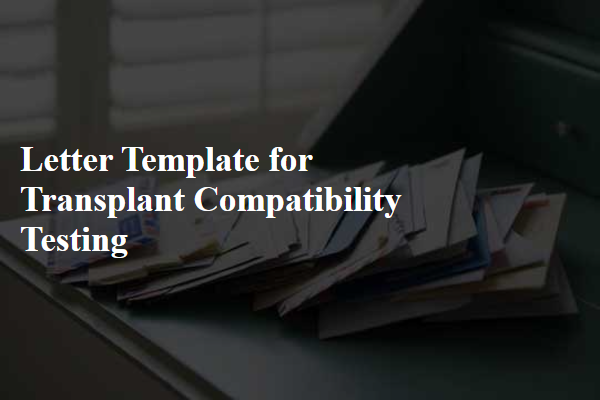
Patient Information and Unique Identifier
Transplant compatibility testing is a crucial procedure in the field of organ transplantation. This process begins with the collection of detailed patient information, including the patient's medical history, blood type, and specific health conditions. Assigning a unique identifier number ensures that each patient can be accurately tracked throughout the testing process, which commonly involves Human Leukocyte Antigen (HLA) typing. This test assesses the compatibility between the potential donor's and recipient's immune systems, measured by various factors such as antigen matching. Accurate testing, performed in specialized laboratories, directly influences the success rate of transplants and helps mitigate the risk of organ rejection. Timely coordination among hospital staff, transplant centers, and testing facilities plays a pivotal role in enhancing patient outcomes.
Testing Purpose and Type
Transplant compatibility testing serves a critical role in optimizing organ donation outcomes, focusing on minimizing the risk of rejection in transplant patients. This process encompasses various test types, including Human Leukocyte Antigen (HLA) typing, which identifies specific proteins on the surface of cells, crucial for the immune system's recognition of foreign tissues. Additionally, crossmatching tests assess the compatibility of donor and recipient blood samples, vital for ensuring that the recipient's immune system will not attack the transplanted organ. By meticulously evaluating the genetic markers and immune responses, healthcare professionals can make informed decisions that significantly enhance the success rates of organ transplantation procedures. Testing facilities, such as specialized laboratories affiliated with major transplant centers, conduct these evaluations under stringent protocols to guarantee accurate results, often utilizing advanced techniques like PCR and flow cytometry.
Sample Requirements and Handling Instructions
Transplant compatibility testing is essential in determining the suitability of donor organs for recipients to ensure successful transplantation outcomes. Sample requirements typically include whole blood or serum collected in sterile tubes, such as EDTA or serum separator tubes, with an ideal volume of 10 mL to adequately perform various assays. Samples must be processed within two hours of collection to prevent degradation, with centrifugation at 1500-2000 RPM for 10-15 minutes for serum extraction. Proper labeling is critical, indicating patient demographics (like name, age, and medical history) and collection date. Additionally, samples should be stored at 4 degrees Celsius for short-term transport or frozen at -20 degrees Celsius for longer-term storage, as testing methods may vary, including crossmatching and histocompatibility assays, which are vital in assessing ABO blood group compatibility and HLA antigen matching.
Timeline and Contact Information
Transplant compatibility testing involves a detailed timeline and precise contact information to ensure a successful organ transplant process. Initial testing typically occurs within two weeks of donor identification, requiring blood samples for Human Leukocyte Antigen (HLA) typing and crossmatching to assess compatibility. The crossmatching process, which can take up to 48 hours, is crucial in preventing acute rejection post-transplantation. Contact information for the transplant coordinator at the transplant center should be clearly provided, typically including a 24-hour hotline number and email address for urgent inquiries. In cases of multi-organ transplants, communication between various specialists is essential, with meetings scheduled at least once a week to discuss donor-recipient matches and progress updates.
Legal and Ethical Disclaimers
Transplant compatibility testing involves a critical analysis of biological samples to assess the potential for successful organ or tissue transplantation between donors and recipients. The testing process examines human leukocyte antigens (HLAs) to determine genetic compatibility, which significantly impacts the likelihood of transplant acceptance. Legal and ethical disclaimers must highlight the importance of informed consent, ensuring that all parties understand the risks and benefits associated with the testing procedure. Confidentiality of medical information, as mandated by regulations such as HIPAA (Health Insurance Portability and Accountability Act), must be strictly maintained to protect patient privacy. Additionally, any findings from compatibility testing should not substitute for medical advice or decisions regarding transplant eligibility, as these should be established by healthcare professionals based on comprehensive clinical evaluation.
Letter Template For Transplant Compatibility Testing Samples
Letter template of request for transplant compatibility testing information
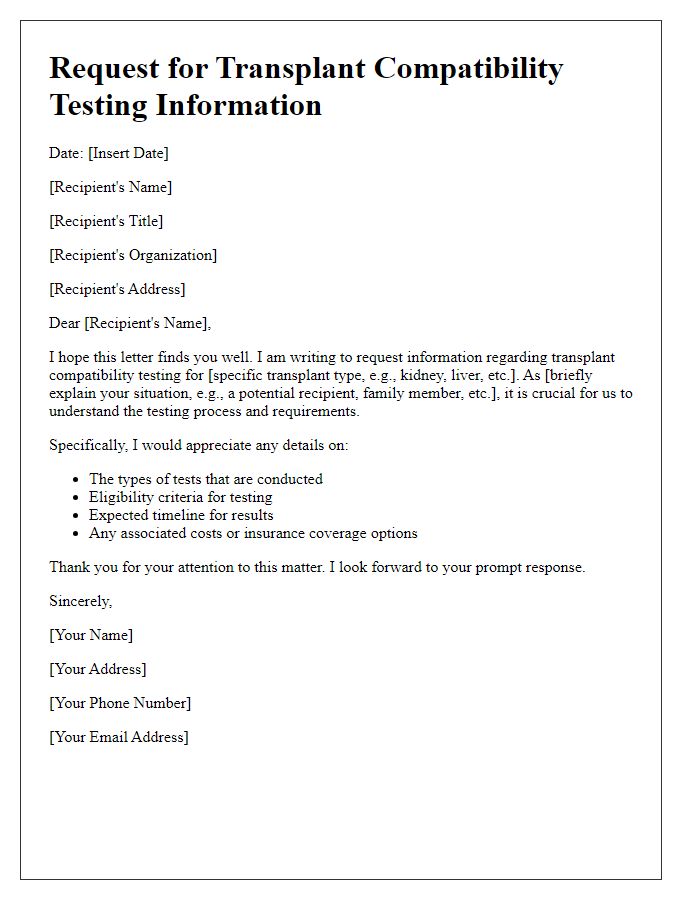
Letter template of appeal for expedited transplant compatibility testing
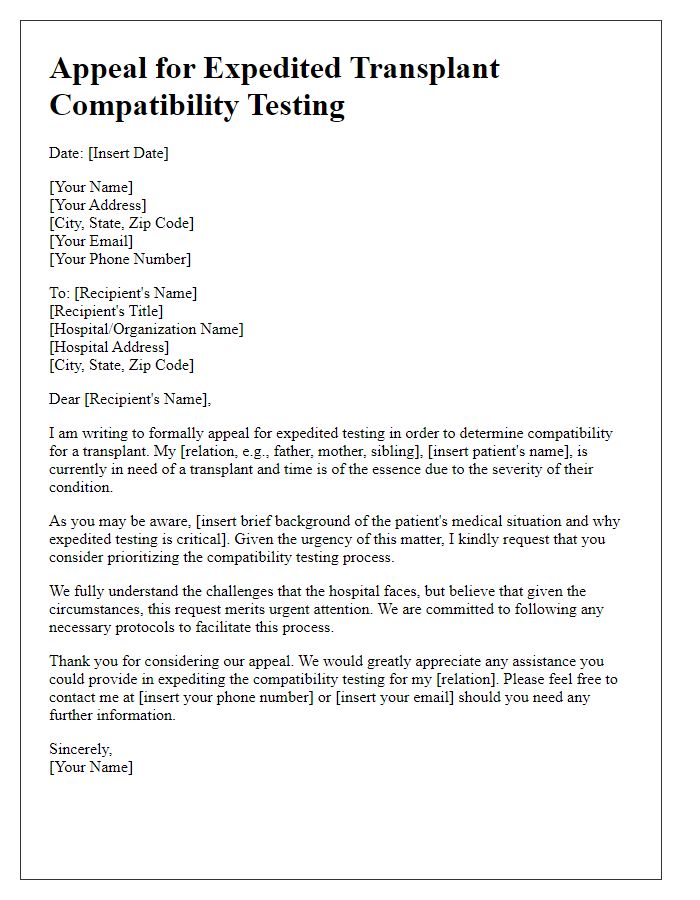
Letter template of request for additional transplant compatibility tests
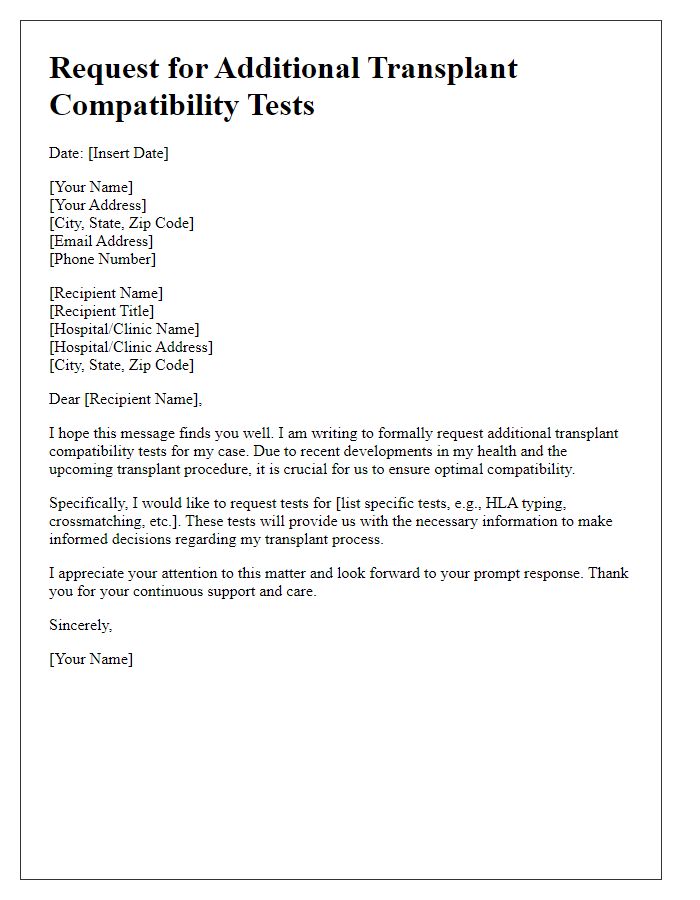

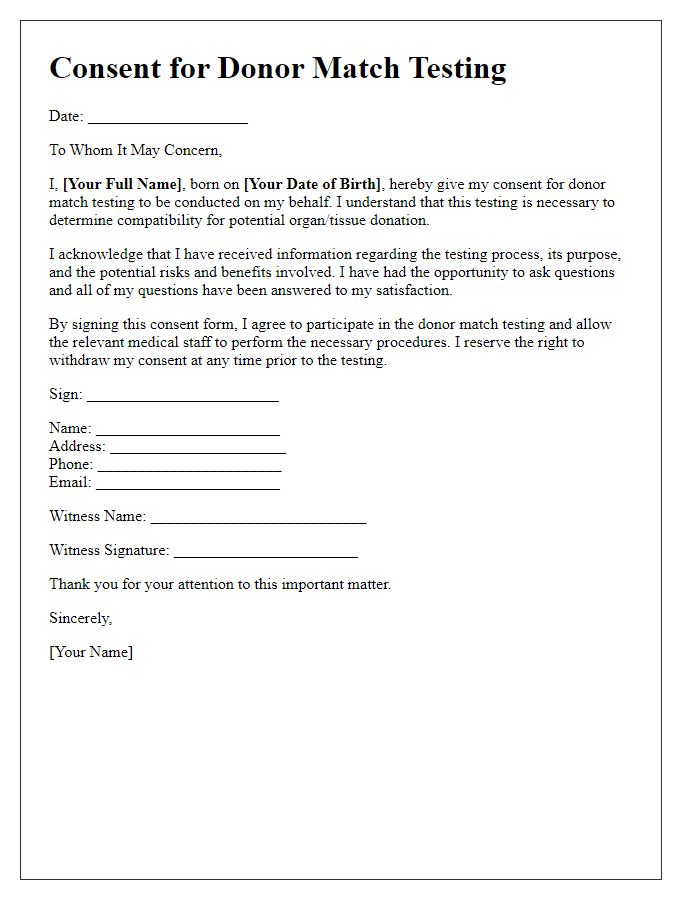
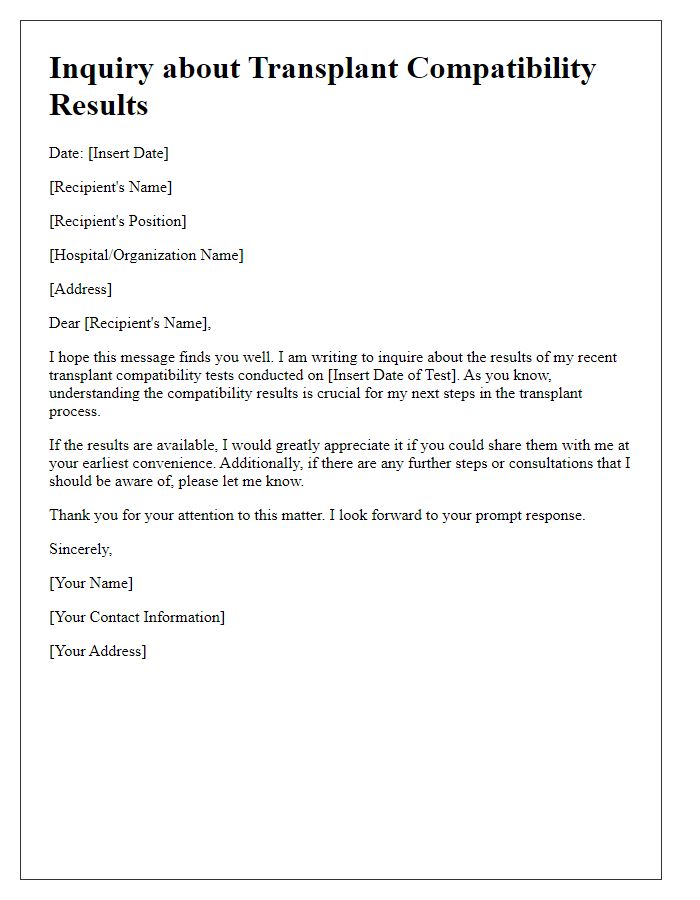
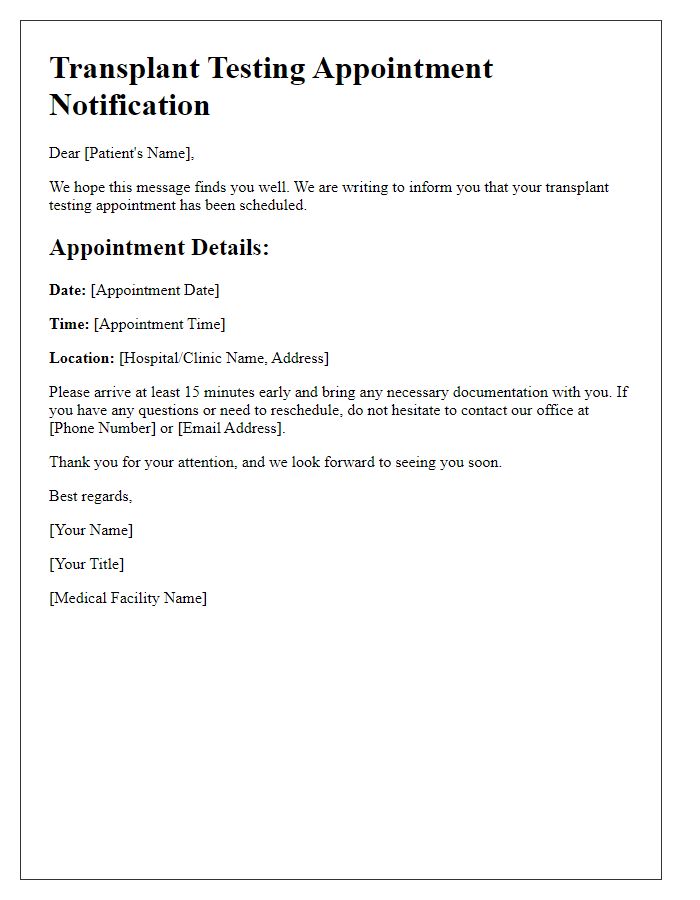
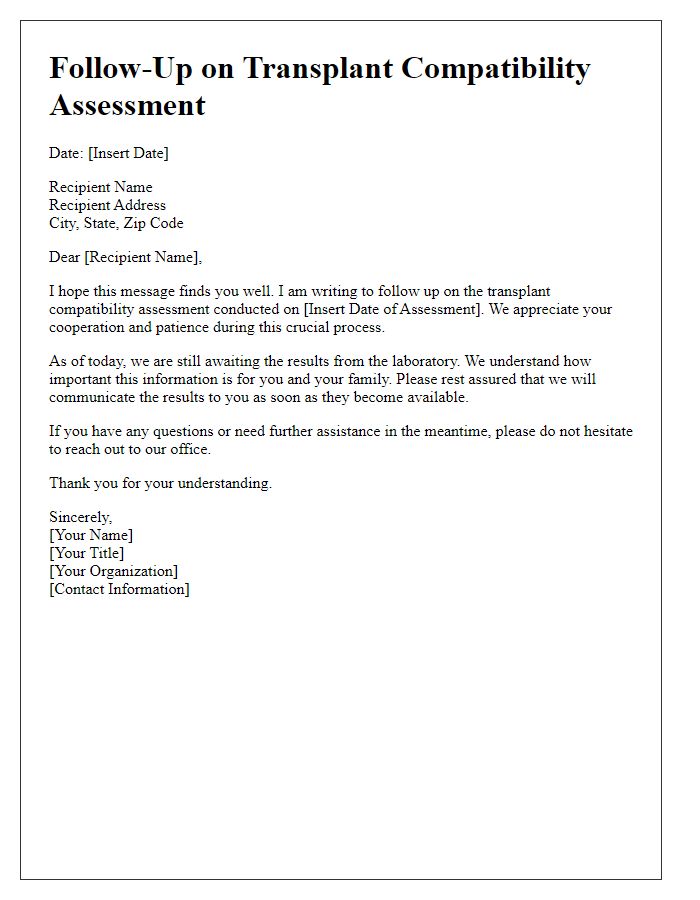
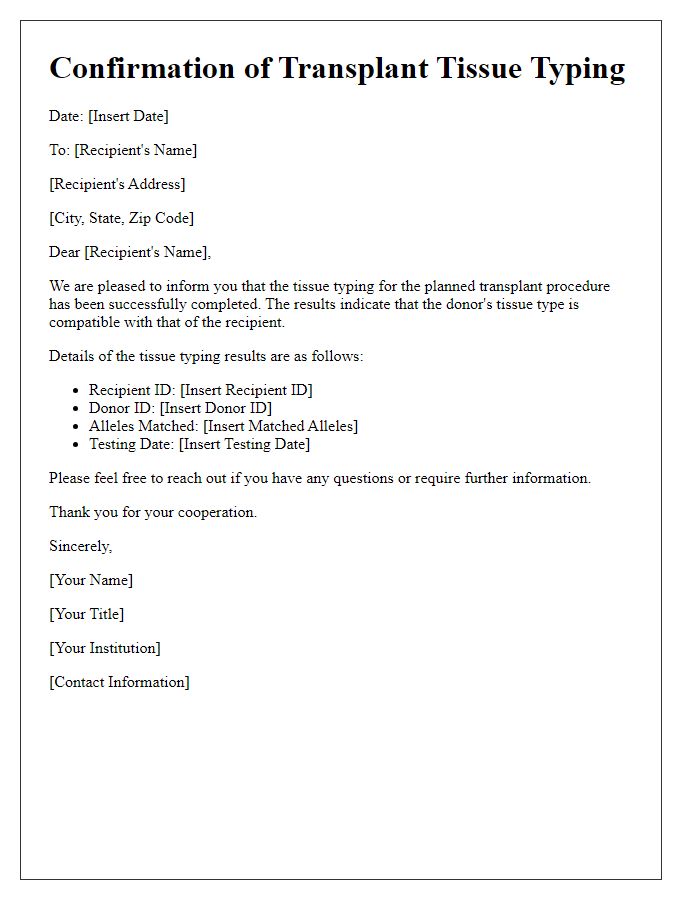
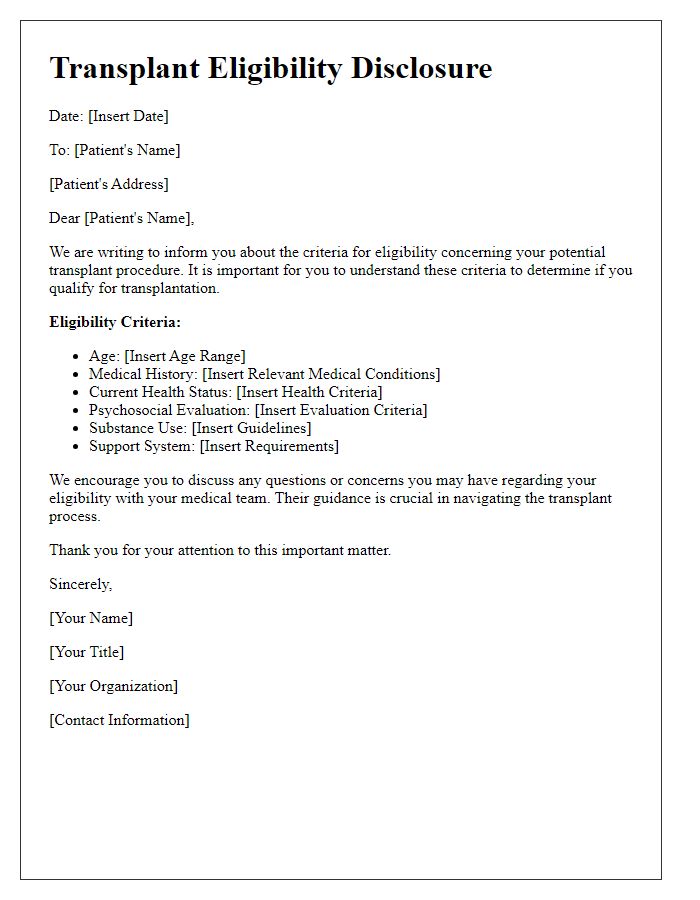
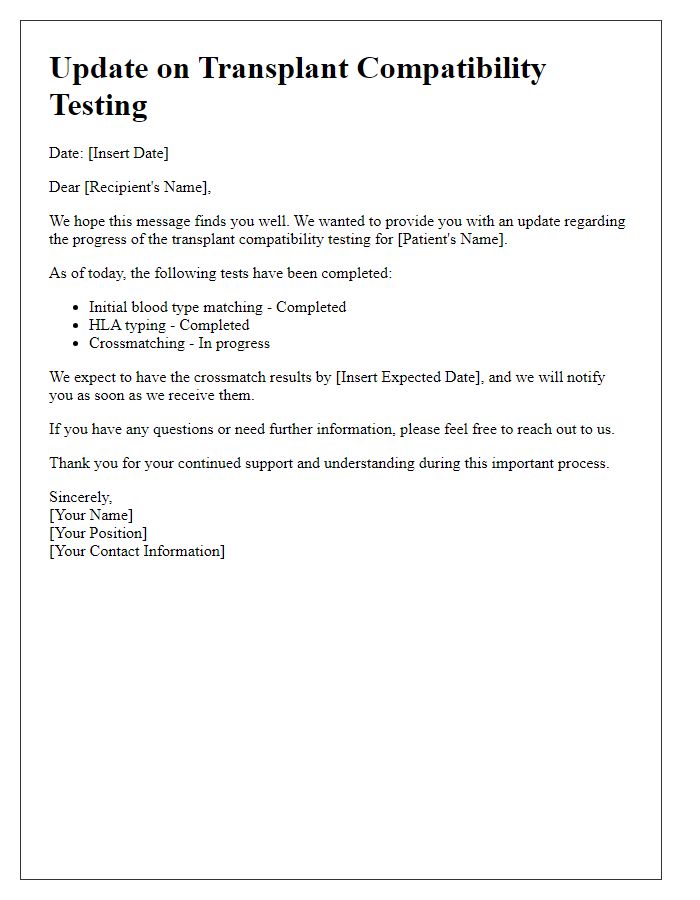


Comments